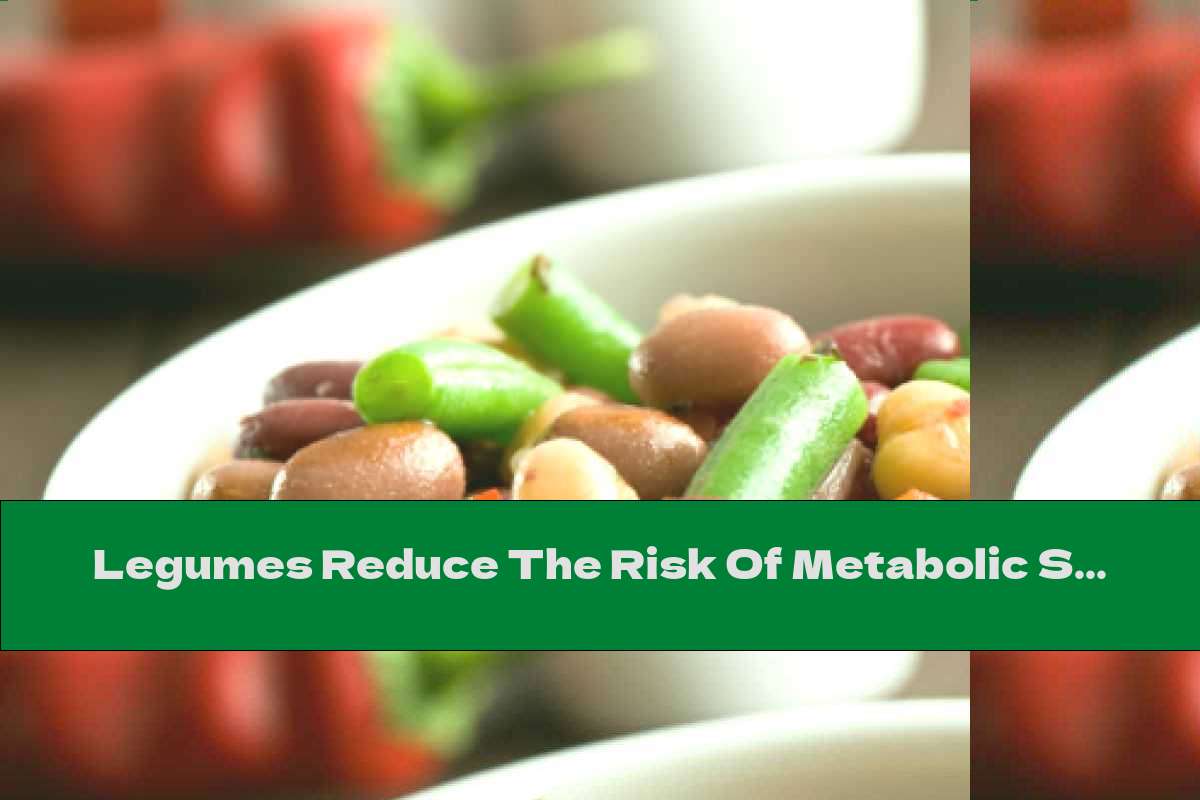Legumes Reduce The Risk Of Metabolic Syndrome
 Author: Marko Balašević
Time for reading: ~1
minutes
Last Updated:
January 27, 2026
Author: Marko Balašević
Time for reading: ~1
minutes
Last Updated:
January 27, 2026

In this article, learn more about Legumes Reduce The Risk Of Metabolic Syndrome. Normalize blood sugar and cholesterol ....
Consuming large amounts of legumes can prevent the development of metabolic syndrome . Metabolic syndrome is a set of physiological disorders characterized by an increased risk of developing diabetes and cardiovascular disease.
The study shows that patients with metabolic syndrome consume legumes an average of 1.4 times a week, while for the control group this figure is 2.3.
80 men and women with metabolic syndrome and 160 healthy volunteers participated in the study. Their fasting blood sugar, blood pressure and cholesterol were measured by standard methods. The eating habits of the participants in the study were assessed through questionnaires as the intake of legumes was determined for each participant individually.
The analysis of the results shows that men and women with the highest intake of legumes have lower blood pressure, blood sugar and cholesterol compared to those with the lowest intake. After taking into account the differences in lifestyle and eating habits, it was found that people with the highest intake of legumes have a 75% lower chance of being diagnosed with metabolic syndrome than those with the lowest intake. This forecast is valid even after taking into account the body mass index (BMI). BMI is the ratio of a person's weight (in kilograms) to his height (in meters) squared. It is used as an indicator to determine how healthy a person's weight is.
The researchers concluded that high bean intake was inversely proportional to the risk of developing metabolic syndrome or individual symptoms.
The study does not show exactly which ingredients of legumes are responsible for the reduced risk. However, other studies suggest that it may be the fiber contained in legume seeds.
Related Articles
- The Ultimate Guide to E120i (Carmine) in Nutrition: Benefits, Usage, Recipes, and Risks
- The Impact of Potato Chips on Health: Nutritional Content, Risks, and Alternatives
- The Ultimate Guide to E161 in Nutrition: Sources, Benefits, and Risks
- The Ultimate Guide to Protein Shakes: Benefits, Recipes, and Risks
- E 481 in Nutrition: Benefits, Recipes, and Risks
Top Nutrition Articles Today
- . The Latest Food Pyramid: A Guide to Balanced Nutrition
- . Nutrition Guide: Importance of Food Pyramid, Meal Planning,...
- . The Role of Hydrochloric Acid in Digestion: A Comprehensive...
- . The Power of Chalk in Nutrition: Benefits, Recipes, and Tips
- . Hydrochloric Acid in Digestion: Importance, Symptoms, and Na...
- . Peyronie's Disease and Nutrition: Exploring the Connection
- . The Ultimate Guide to Nonfat Dry Milk: Benefits, Recipes, an...
- . All You Need to Know About E471 in Food: Functions, Foods, H...
- . List of Foods that Contain Carrageenan: A Guide to Avoiding...
- . The Role of Water in Nutrition: Importance and Functions Exp...